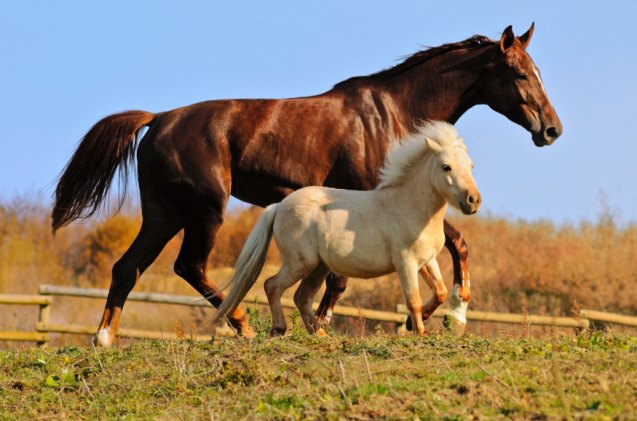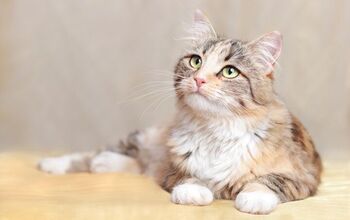Difference Between a Pony and a Horse - Which Should You Choose?

To some, horses and ponies are not altogether different, but to others, their many differences are clear as a day. The truth is somewhere in between – it’s not only about their size: horses and ponies do have some subtle differences in more ways than one. Potential horse or pony owners should know about these, and make their choice of a new friend carefully. It can mean a world of difference in your relationship with your new equine friend!
First thing first – understanding the terminology. Most readers associate a “pony” with a tiny horse. This isn’t always the case, as these can be specifically bred “toy” horses and ponies. Generally, the professional world dictates that a horse is an equine that is at least 4’ 10” tall, or roughly 150 centimeters and up. Pony, on the other hand, is any breed of horse that is standing less than this height. But height is not always the ground rule for differentiating the two as there can be many subtle differences that set them apart.
The most obvious is, of course, the difference in growth. Ponies will stay smaller throughout their lives, while horses won't. Now, don’t go and mistake a foal (a young horse) for a pony. A telltale difference is the length of the legs - horses will usually have the same leg length throughout their lives. On the other hand, ponies can be more stout and stocky, with shorter bodies and proportionally shorter legs. Their foreheads are also broader, so look out for that clue. Now, thanks to all these traits, ponies can be much stronger and hardier than the elegant mature horse. They are also more resistant to cold and can work for longer. That is why, throughout history, ponies were considered good and hardy work animals.
Another key difference that you might spot between the two is mane and coat. The pony has a thicker mane and a visibly thicker (if not shaggy) coat. On the other hand, the horse’s coat is often smooth and shiny, especially if groomed.
Interestingly, ponies tend to mature much faster than horses. Some horses won’t reach maturity and their full size until they are six or seven years old, while ponies tend to grow up considerably quickly. This is one of the key differences you need to know when making your choice. Of course, this can influence a whole number of things related to care, but it still does not make ponies any easier to care for and bring up.
When we consider training and bonding, which many future owners will have to do, it is important to know that ponies tend to be quite stubborn. In fact, they are much more stubborn than horses. Often described as docile and “stoic”, ponies are willful animals that are closer to mules in their stubbornness. In the long run, this can affect training and make it more difficult. But, if you manage to find a “common language” with your pony, and find a common ground, you can quickly establish a unique and friendly relationship that will last a lifetime. Of course, accepting at least a part of the pony’s stubbornness is part of the deal! While a horse can be more obedient and eager to work and complete tasks, a pony can be an expert at avoiding work and having their own way!
When making a choice, consider the feeding requirements of both breeds. Ponies, due to their size, often require less feed than full-grown horses. This can make them somewhat cheaper to care for. Still, be careful with the portions you give them: stubborn ponies often like to pretend they’re hungry and want more food. Learn the adequate portions in order to avoid overfeeding your pony - this can cause major health issues. On the other hand, if your pony is to be pasture-fed, it can again be easier to feed than a regular horse. On a pasture that can be too thin and poor for a horse, a pony can easily fill their needs.
Last, but not least, is longevity. If you are looking to get yourself an equine friend for a lifetime, then a pony is the choice to make. This is because they live longer than horses, some living well beyond thirty years of age, as opposed to their horse counterparts whose expected lifespan is usually a decade shorter.

A proud mama to seven dogs and ten cats, Angela spends her days writing for her fellow pet parents and pampering her furballs, all of whom are rescues. When she's not gushing over her adorable cats or playing with her dogs, she can be found curled up with a good fantasy book.
More by Angela Vuckovic























